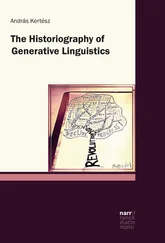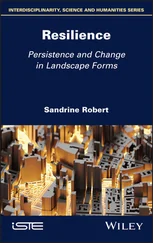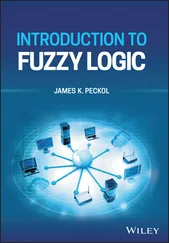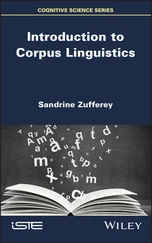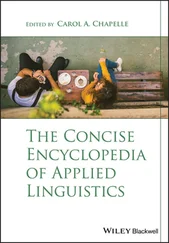Sandrine Zufferey - Introduction to Experimental Linguistics
Здесь есть возможность читать онлайн «Sandrine Zufferey - Introduction to Experimental Linguistics» — ознакомительный отрывок электронной книги совершенно бесплатно, а после прочтения отрывка купить полную версию. В некоторых случаях можно слушать аудио, скачать через торрент в формате fb2 и присутствует краткое содержание. Жанр: unrecognised, на английском языке. Описание произведения, (предисловие) а так же отзывы посетителей доступны на портале библиотеки ЛибКат.
- Название:Introduction to Experimental Linguistics
- Автор:
- Жанр:
- Год:неизвестен
- ISBN:нет данных
- Рейтинг книги:4 / 5. Голосов: 1
-
Избранное:Добавить в избранное
- Отзывы:
-
Ваша оценка:
- 80
- 1
- 2
- 3
- 4
- 5
Introduction to Experimental Linguistics: краткое содержание, описание и аннотация
Предлагаем к чтению аннотацию, описание, краткое содержание или предисловие (зависит от того, что написал сам автор книги «Introduction to Experimental Linguistics»). Если вы не нашли необходимую информацию о книге — напишите в комментариях, мы постараемся отыскать её.
Introduction to Experimental Linguistics — читать онлайн ознакомительный отрывок
Ниже представлен текст книги, разбитый по страницам. Система сохранения места последней прочитанной страницы, позволяет с удобством читать онлайн бесплатно книгу «Introduction to Experimental Linguistics», без необходимости каждый раз заново искать на чём Вы остановились. Поставьте закладку, и сможете в любой момент перейти на страницу, на которой закончили чтение.
Интервал:
Закладка:
The various studies described above correspond to research based on data observation. This type of research is generally used when, for practical or ethical reasons, it is necessary to observe variables from the outside. In this type of research, researchers do not interfere with the object of study, but observe the relationship between two variables at a given moment. As a consequence, the results of an observational study must be kept at a descriptive level, since it is not possible to infer a causal relation between two variables. In our example of a correlational study, the age when learning begins is related to language proficiency, but it is not possible to state that an increase in age is the cause for the decrease in language proficiency. It might be possible that other variables not considered in our research can also explain the relationship between the variables examined. We could imagine, for example, that the context in which second language acquisition takes place is not the same depending on the age when the learning process begins. It is likely that when young children learn a second language, this takes place within a family setting, where parents may speak different languages or a different language from that of the external environment. When older people start learning a language, it is probable that they grew up in a monolingual linguistic environment and later discovered a second language at school, or when moving to another country, for example. The type of linguistic exchanges may also differ depending on age, as well as the motivation to learn, cognitive skills or many other variables. These external variables that are left aside during research are called confounding variables and are related to the two variables examined, age and language proficiency. It could be, that language learning conditions rather than age itself can account for the differences in language levels. Since it is impossible to distinguish the variables examined, from confounding variables, research based on the observation of data should not draw a conclusion from a causal relation between two variables.
In order to determine a causal relation between two variables, it is necessary to exclude any confounding variable. By using experimental methodology, the variables of interest can be manipulated to determine what effect a variable has on another variable, regardless of other possibly interfering variables. In other words, rather than observing natural data, the experimental methodology defines the conditions under which a phenomenon could be observed and then sets up an experiment in which these conditions can be manipulated, in order to measure their influence on the phenomenon under investigation. In the rest of this chapter, we will describe in more detail the various characteristics of experimental research.
1.2. Characteristics of experimental research
In this section, we will first stress the fact that experimental research must be based on a research question that makes it possible to formulate precise hypotheses. We will then see that in order to empirically assess a hypothesis, an experimental study must manipulate variables of interest while controlling other variables, which may influence the outcome of the experiment. Finally, we will discuss some methodological aspects of data collection, so that they can be analyzed through the use of statistics. These points will be elaborated in detail in the chapters dedicated to these different aspects.
1.2.1. Research questions and hypotheses
We have already emphasized that experimental research is part of a scientific process. It builds on existing knowledge in a research field and aims to increase such knowledge by studying a research question generated on the basis of an existing theory. A scientific research question identifies the potential cause for a phenomenon and postulates a cause to effect relation between the cause and phenomenon. For example, the question “how do we understand a text?” is not a research question, as it is too vague. Such a question corresponds to a general research topic, from which many research questions can emanate. On the other hand, a question such as “what is the role of memory in readers’ comprehension of a text?” is a research question that can be investigated empirically. This question identifies a cause – memory – and a consequence – text comprehension –, and establishes a relation between the two.
Once the research question has been defined, it is necessary to transform it into a research hypothesis , which corresponds to an empirically testable statement. In other words, the hypothesis must be confirmed or rejected on the basis of objective data. In order to do this, the research hypothesis must be operationalized, that is, it is necessary to specify which variables will be examined and how these variables will be measured, in order to collect relevant data for the experiment.
If we go back to our example above, memory is still a vague concept. As a matter of fact, a distinction is generally made between long-term memory, short-term memory and working memory. Working memory is a system that simultaneously stores and processes verbal elements (verbal working memory) or visual elements (visuospatial working memory). It is typically the verbal working memory that we use for reading, for deciphering and for putting together the words in a sentence. The operational hypothesis should therefore define what type of memory will be the object of study, verbal working memory, for example.
In the same way, the operational hypothesis should explain the way in which reading comprehension will be measured. Reading comprehension involves many steps, from deciphering words to relating these words in a sentence, and then to a text. Therefore, it is impossible to measure reading comprehension in only one way or with one type of experiment. We need to narrow down this notion to a more precise variable, corresponding to a process involved in reading comprehension that can be measured. For example, this could be the elements included in the readers’ representation of the text and stored in memory once the reading has finished. One way to assess comprehension would be to ask questions about the text at the end of reading and count the number of correct answers.
Let us look at a few more examples to understand what a research hypothesis is:
1 (1) Bilinguals have different cognitive abilities from monolinguals.
2 (2) Reading and understanding a text is difficult for children.
The above-mentioned hypotheses cannot be the basis of experimental research since they do not meet the criteria listed above. Their terms are too vague, they specify neither the cause nor the effect, and do not specify any measure to rely on so as to draw conclusions.
In order to be tested empirically, these hypotheses could be transformed into (3) and (4):
1 (3) Bilinguals perform better than monolinguals at a cognitive flexibility task.
2 (4) When reading a text, 10–12-year-old children draw fewer inferences than 14–16-year-old teenagers.
In these two examples we see that the vague terms used in (1) and (2) have been transformed into accurate terms in (3) and (4). Cognitive skills became performance during a cognitive flexibility task, and understanding a text became drawing inferences . By doing this, measures for quantifying the variables were defined. In addition, (4) specifies which groups will be included and compared in the study. Finally, both (3) and (4) indicate a clear relationship between variables.
In summary, a research hypothesis is based on existing knowledge in order to establish a relationship between two or more variables. It must also be operationalized, that is, clearly defining the measures that will be used for quantifying the variables being examined to verify the hypothesis.
Читать дальшеИнтервал:
Закладка:
Похожие книги на «Introduction to Experimental Linguistics»
Представляем Вашему вниманию похожие книги на «Introduction to Experimental Linguistics» списком для выбора. Мы отобрали схожую по названию и смыслу литературу в надежде предоставить читателям больше вариантов отыскать новые, интересные, ещё непрочитанные произведения.
Обсуждение, отзывы о книге «Introduction to Experimental Linguistics» и просто собственные мнения читателей. Оставьте ваши комментарии, напишите, что Вы думаете о произведении, его смысле или главных героях. Укажите что конкретно понравилось, а что нет, и почему Вы так считаете.
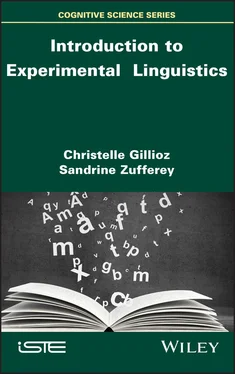


![Andrew Radford - Linguistics An Introduction [Second Edition]](/books/397851/andrew-radford-linguistics-an-introduction-second-thumb.webp)

